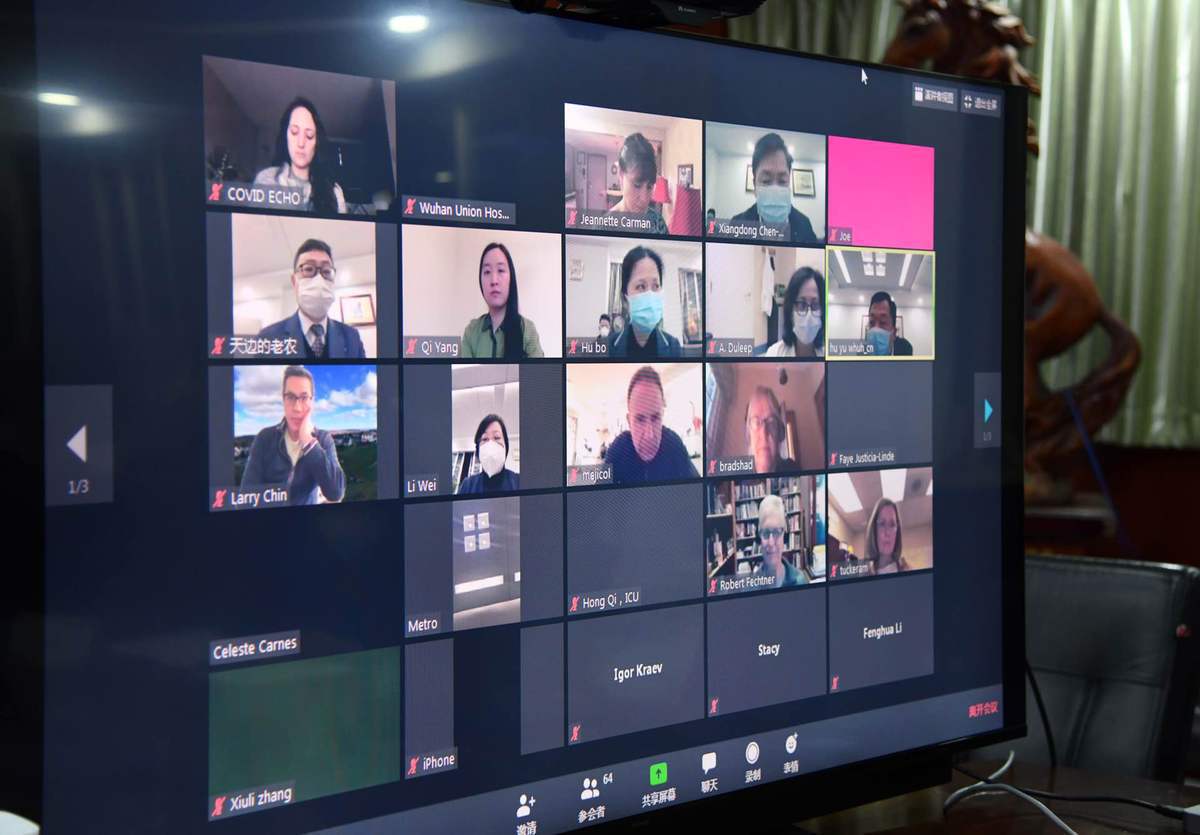Experts urge closer Sino-US ties in public health






From the early detection of community transmission to best practices in combating COVID-19, China's experience are applicable to disease control in the United States, and the two countries need to ramp up cooperation, a former health counselor at the US embassy in Beijing said on Wednesday.
"I think the biggest lesson is that community spread can happen before you notice it. We were testing far too narrowly when we should have considered the implications for the entire country," said Deborah Seligsohn, who was an environment, science, technology and health counselor at the US embassy in China from 2003 to 2007.
Seligsohn, who worked at the embassy when Beijing and Washington cooperated in the fight against the severe acute respiratory syndrome outbreak, said the US needs to examine the way Chinese provinces outside of Hubei province, once the epicenter of the COVID-19 contagion, implemented controls to determine best practices.
An investigation of transmission-control measures during the first 50 days of the coronavirus epidemic in China since the shutdown of Wuhan, the capital of Hubei, on Jan 23 found that suspending intracity public transportation, closing entertainment venues and banning public gatherings were associated with a reduced number of cases.
The national emergency response appears to have delayed the growth and limited the size of the epidemic in China, averting hundreds of thousands of cases, according to a report on the investigation published by Science magazine on Tuesday.
Seligsohn, now assistant professor of political science at Villanova University in Pennsylvania, said the US Centers for Disease Control and Prevention and the Chinese Center for Disease Control and Prevention are both top epidemiological organizations, but without an overall constructive relationship, it is difficult for them to work together at the level they did before.
The US and China had a high level of cooperation in battling SARS, the H5N1 and H1N1 influenza outbreaks and Ebola virus disease, Seligsohn noted. Such collaboration, if maintained, would have allowed scientists to put their heads together, which might have helped with China's initial response to disease.
Asked if public health exchange forums, such as the US-China Health Summit held in 2017, should be resumed, Seligsohn said it is urgent to restart high-level engagement.
"We need leaders to agree on a robust program of global disease detection," she said. "We know China has many more trained epidemiologists and resources than it did before SARS, so this should be a different relationship. It should be one where we work together in many places to detect future disease outbreaks."
Ruan Zongze, executive vice-president of the China Institute of International Studies, said as the two major powers in the world, in the current circumstances, China and the US should be united, not just fighting their own war against the virus, but providing essential aid to countries with less developed public health systems.
China's initial achievements in containing the epidemic cannot be achieved without the strong support of the international community, Ruan said, adding that when the disease broke out in China, US organizations and companies extended a helping hand, which was highly appreciated by the Chinese people.
He noted that at this moment, China is actively engaged in international and regional cooperation to combat the epidemic, while continuing to prevent and control the epidemic at home.
"While the US is currently facing an escalation of the outbreak, many Chinese companies and individuals are also providing assistance. China and the US should cooperate in fighting the pandemic," Ruan added.
At a news conference on Wednesday, US President Donald Trump said it is "positive" that China is shipping medical supplies to help countries battle the coronavirus pandemic.
"I view that as a positive if they're helping other countries," Trump said, adding, "If China can help them, I'm all for it."
When asked if he had received an intelligence report that talked about a discrepancy in the COVID-19 numbers in China, Trump said "we have not received" any intelligence reports showing that China underreported its coronavirus numbers, though he said the numbers "seem to be a little bit on the light side".
"As to whether or not their numbers are accurate, I'm not an accountant from China," Trump said."But we had a great call the other night, we're working together in a lot of different things including trade," he said, referring to the phone conversation he had with Chinese President Xi Jinping on Friday on anti-epidemic cooperation and bilateral ties.
With the total global COVID-19 cases set to exceed 1 million, the World Health Organization expressed its grave concern on Wednesday about the rapid escalation of the pandemic.
WHO Director-General Tedros Adhanom Ghebreyesus said there had been an exponential growth in infections during the past five weeks, with the disease now reaching almost every country, territory and area, and with the number of deaths more than doubling in the past week.
"I am deeply concerned about the rapid escalation and global spread of infection," Tedros said, adding the WHO now expects the number of COVID-19 cases to reach 1 million and 50,000 deaths in the coming days.
The number of the confirmed coronavirus cases in the US surged past 216,000 as of Wednesday-more than any other nation, with more than 5,100 reported deaths.
Xinhua and agencies contributed to this story.
- Latest on the novel coronavirus outbreak
- Sino-US partnership crucial to contain virus
- Vision China calls for unity in virus battle
- A Joint open letter from World Political Parties concerning closer international cooperation against COVID-19
- Wuhan doctors share expertise with New York colleagues online
- Space schedule opens with two launches
- Winter cherry blossoms create unexpected spectacles
- Chongqing park becomes stage for captivating natural phenomenon
- Chongqing's cat theme park draws visitors, aids rescues
- Winter fishing season brings fresh catches at Hunan's Liuye Lake
- Former Guizhou official gets 11-year sentence for bribery

































